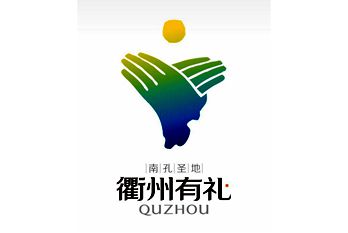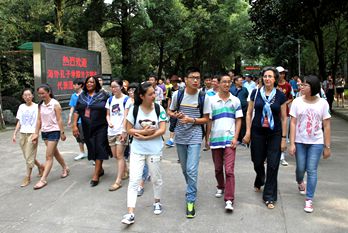Cooperation pays off in Zhejiang
Editor's note: With its people-centered philosophy, China will build the eastern province of Zhejiang into a demonstration zone for achieving common prosperity. This series looks at the latest steps taken in various areas to meet that goal.
Zhong Feijun, 34, used to work in a furniture company, with daily commutes from his village to the city adding to the long hours. "Things are much better now with my current job. I've also bought a place near my hometown," he said.
Zhong is now a supervisor at the Dollor sewing machine production facility in Lishui, a city in East China's Zhejiang province.
He is also one of the rising number of Lishui's rural residents who have benefited from novel measures bringing together the latest development policies and private enterprise, to help fuel advanced and innovative economic and industrial practices ensuring more inclusive growth.
"I manage about 40 people in my team and also receive skills training myself at least four hours a month. I also have shares in the company, so we can all grow together," said Zhong, adding that, in his three years at the company, his annual income has doubled to at least 150,000 yuan ($23,500).
The 40,000-square-meter production facility in Lishui has an annual output of more than 200,000 units, and 70 percent of its 350 employees are local hires such as Zhong.
Wang Mingjian, Dollor's general manager, said that one of the ways that the company stays at the forefront of the sector is by giving its employees an important stake in its growth.
The company taps and builds on strong links with the neighboring coastal city of Taizhou, an industrial and private enterprise hub hosting leading companies, he said.
"We want to help take local industry to the highest level, lifting everybody up by leveraging the right policies and incentives," Wang said.
Lishui's urban-rural cooperation exemplifies Zhejiang's major Shanhai Xiezuo projects between mountainous and coastal areas, harnessing the expertise, skills and resources of developed cities to help underdeveloped areas plug development gaps and promote coordinated progress within the province.
The move is in line with a national effort to achieve common prosperity.
As one of China's developed provinces, Zhejiang has been designated as a demonstration zone of inclusive growth for the next major stages in the country's development.
The province aims to achieve common prosperity by 2035, with its per capita gross domestic product and the income of urban and rural residents reaching developed countries' standards.
In August, a meeting of the Central Committee for Financial and Economic Affairs, which was chaired by President Xi Jinping, who is also general secretary of the Communist Party of China Central Committee, outlined steps to promote common prosperity through high-quality growth, calling for a phased approach to reach the target.
With the drive for common prosperity expected to be long-term and comprehensive, the country is set to pursue it in a gradual and progressive manner, with suitable areas offering replicable practices and models.
Zhejiang has a population of about 65 million and boasts top enterprises led by the private sector. The latest plan allows it to show how the nation can tackle unbalanced and inadequate development.
As a key indicator of balanced development, the income ratio between urban and rural residents in Zhejiang fell to 1.96:1 last year, significantly lower than the national level, according to provincial authorities.
Technology has also helped in terms of poverty reduction, public services and grassroots governance, playing a vital role in improving people's livelihoods, with Zhejiang nurturing a market-oriented, law-based and internationalized business environment by tapping advances like digitalization, its officials said.
In Liandu district of Lishui, major Shanhai projects are rolling out to allow the industrial prowess, logistics networks and entrepreneurial know-how of provincial economic hubs such as Yiwu and Ningbo to fuel infrastructure and other development work.
The Liandu-Yiwu Shanhai Cooperation Industrial Park covers more than 4 square kilometers. It hosts over 200 enterprises, including more than 30 national and provincial-level high-tech companies and research and development center facilities. The area has attracted over 8.5 billion yuan in infrastructure and corporate investment, and more than 18 billion yuan in contractual investment.
In Liandu, a new livestock and poultry industry chain intelligent project of meat and agricultural group Huatong, touted as the largest of its kind in Lishui with total investment of 750 million yuan, boasts automated and computerized production and environmental control facilities such as intelligent feeding, fermentation and sewage treatment systems.

 City brand logo - fist-and-palm salute
City brand logo - fist-and-palm salute Confucianism on campus
Confucianism on campus The culture of the academy
The culture of the academy